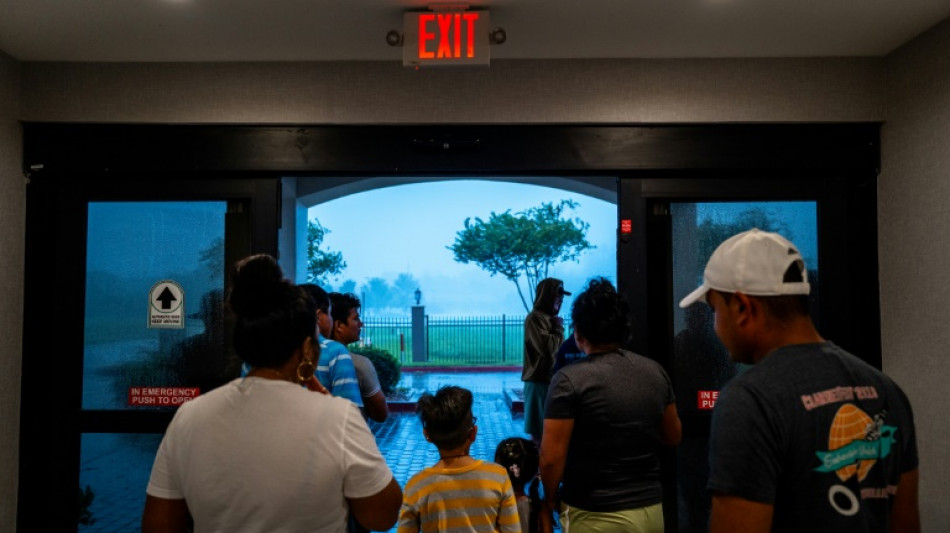

Storm Francine downgraded but still drenching US south
Francine weakened Thursday as it moved inland from Louisiana, where the storm left hundreds of thousands without power, but it was continuing to dump dangerous levels of rain across the US south, forecasters said.
After making landfall on Wednesday afternoon as a Category 2 hurricane, Francine was downgraded by the following morning to a tropical depression, the National Hurricane Center (NHC) said in its latest advisory.
Strong downpours were nonetheless expected across portions of Mississippi, Arkansas, Tennessee, Alabama, Georgia and Florida.
Storm bands over Alabama and the Florida Panhandle could produce up to 10 inches (25 centimeters) of rainfall, the NHC said, warning it "could lead to locally considerable flash and urban flooding."
Cleanup efforts were meanwhile underway in Louisiana, with local media reporting downed trees in many areas and isolated instances of damage, though luckily no known injuries or deaths.
Francine made landfall as a Category 2 hurricane on a five-level scale in Terrebonne Parish, on the southern edge of the state, at 5:00 pm local time (2200 GMT), the NHC said.
Local TV stations and footage on social media showed coastal towns battered by the storm, with some street flooding and damage to roofs.
Almost 380,000 customers across Louisiana were without power Thursday morning, according to monitoring website poweroutage.us.
That includes 50,000 customers in the New Orleans area, local NBC affiliate WDSU reported.
"As the sun starts to rise this morning, DO NOT go sightseeing," the National Weather Service's New Orleans office said on X.
"Stay where you are today! Rescuers and emergency response professionals still need to do their jobs this morning!"
The riverside city -- the epicenter of Hurricane Katrina's devastation almost two decades ago -- appeared spared this time from any major impacts.
Over 1,300 people died after Katrina slammed into Louisiana in late August 2005, overwhelming the levee system and causing extensive flooding.
In nearby Thibodaux, 26 people were rescued overnight after becoming trapped by rising floodwaters, according to local news station WAFB.
"Never forget the loving, resilient, and caring people that we are," Louisiana Governor Jeff Landry, who had declared a state of emergency, said in a statement Thursday on X.
"As we begin this recovery, let us care for our family and our neighbors to bring comfort and security to them," he added.
The 2024 Atlantic hurricane season, which began on June 1 and will end November 30, was expected to be busy but has seen just three hurricanes so far, reportedly puzzling scientists.
Hurricane Beryl became the earliest highest-level Category 5 storm on record after it formed in late June and plowed through the Caribbean, eventually hitting Texas and Louisiana, with dozens of deaths reported in its wake.
Scientists say climate change likely plays a role in the rapid intensification of storms, because there is more energy in a warmer ocean for them to feed on.
E.Janssens--JdB



